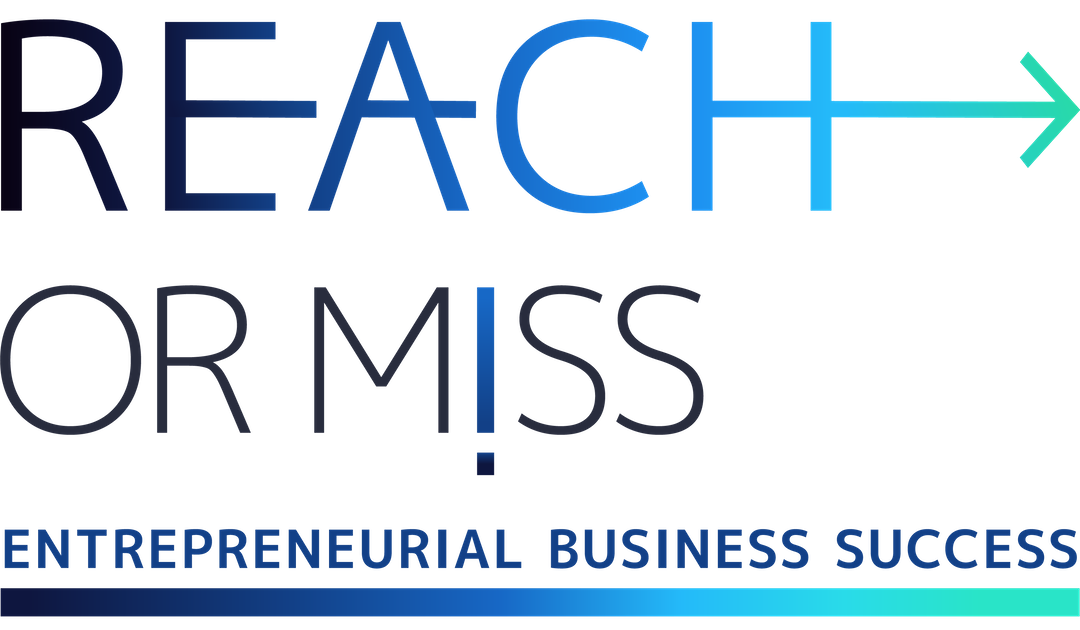Ep. 068 – Roy Sutton “Money is the way we keep score. Work is providing a service to other people in exchange for money.”

Roy Sutton Show Notes
Roy Sutton is an experienced C-Level executive, board director, and former CEO with a broad knowledge base and understanding of business, as well as telecommunications and digital media.
Based in London, Roy is currently a business consultant, blogger, public speaker and entrepreneur using his skills and experience to help people make the most of their lives.
His objectives are achieved by creating digital products designed to offer people solutions to the many common problems they face.
Roy holds an MBA Degree in International Business from Cass Business School, London, and the Certified Diploma in Accounting and Finance from the Association of Chartered Certified Accountants (ACCA). He also holds a BEng Degree in Electronic Engineering from the University of Liverpool and a BA Degree in Spanish & Latin American Studies from the University of London. Roy is a Fellow of the Chartered Management Institute. He is also a Chartered Engineer and a Fellow of the Institution of Engineering and Technology, London.
Most passionate about
- My real interest is digital media and using digital media for marketing purposes. Originally, I set my company up to exploit my own know how, skills, and business contacts.
- I was focused primarily on consultancy work and to an extent, I still am, but I recognized that the problem with consultancy work ultimately is you’re providing a service 1 to1. So, it’s very difficult to scale that up. Whereas, marketing digital products through digital media, you have the opportunity to serve 1 to many. And the thing about the internet, and online marketing is that websites give you a global reach, and they are always open; you don’t need premises, you don’t need an inventory, and your overheads are fairly low. You do have to maintain a website obviously, or a number of websites. I am gradually moving away from pure consultancy to create digital products and offer solutions to my target customers, based on my own knowledge and experience.
- My background is in the telecom industry, the international telecom industry. Also I realized that I know a lot about the telecom sector, which has really helped with things like developing websites and so on. Over time, you learn an awful lot about an awful lot. You develop skills when you’re running a business. I was previously the CEO of a national telecom operator; when you run such a business you learn an awful lot about people, marketing, sales, and general business.
- Tailoring your product as a solution to customer’s problems, I realized I could harness my wider knowledge to create digital products and make money online. So I started by creating websites offering or targeting specific solutions for people. The first website I created was a self-help website; I called it ‘Wit and Wisdom’. Part of it was humor, but mostly it was intended to inspire people that were self-improvers, people who wanted to better themselves, but weren’t quite sure how to get started.
- People use the Internet for two reasons: to be entertained, and to solve problems. My focus is on solving problems, so, I’ll identify specific problems and create a niche website around the specific problem, trying to offer solutions and information that would help to address that problem. And in doing so, I’d make money by advertising or through advertising, through affiliate sales.
- Essentially, I take questions, like ‘How to improve low self esteem’ or ‘How to find the right job for me’, and I create answers that I hope will help people and as part of that I offer resources. This is where I make money, in terms of affiliate sales, by offering resources that would help them, so for instance, if they’re looking for inspirational audio programs, then I would point them in that direction by providing links to those resources, and I would ultimately make money through affiliate sales in this way.
Who are your customers today?
- My customers are essentially self-improvers. People that are trying to improve their lot in life, whether that’s somebody who is trying to improve their self-esteem, build their confidence, or somebody that’s trying to define the job that’s right for them. Often, people get into a job, without really thinking about why they took it in the first place, possibly because initially all they really needed was an income.
- The problem is, unless you really enjoy what you do, it’s very difficult to do it well and if you don’t do it well, it’s very difficult to progress, whereas if you’re doing something that is something you are genuinely passionate about, that you genuinely enjoy, then you will do it well, and if you do it well, people will notice, and once people notice, you will begin to get some momentum in terms of progressing up the career ladder.
- If you can find that sweet spot where you’re really good at it and you genuinely enjoy it, then that is the point at which you can really begin to shine professionally.
Roy’s best advice about approaching customers
- We are all little companies in our own right; we’re all trying to serve other people, because money is the way we keep score. Work is providing a service to other people in exchange for money. So, I think in providing a service whether you’re a business or an individual.
- It starts with trying to see the world through the customer’s eyes. Putting yourself in their shoes, trying to understand their pain points and how your products will alleviate those pain points.
- The key is your product must solve problems for customers. If you’re trying to make a sale to me, as an individual, for example; I’m always much more impressed if you thought about my needs and you can explain to me how your product might help me in alleviating or eliminating a problem, reducing a pain point, removing a headache. I believe all of those things are important. I think in terms of approaching customers to make sales, the key is to catch a buying intent. One of the most inefficient means of selling is cold calling; whereas, if you can capture buying intent, you’re much more likely to get a warm customer that will give you a better chance to make a sale.
It all starts with the customer; what the customer needs, what the customer wants. And the customer doesn’t always know what they want. There’s an old saying: You can’t forecast the number of people that will walk across a bridge by counting the number that swam across the river.
People that wouldn’t have dreamed of swimming across the river will think ‘Hang on! I can walk across that bridge!’
It always starts with the customer.
Biggest failure with a customer
- Understanding that visibility matters. I didn’t fully appreciate this for a long time. It’s all very well, being good at what you do, but if nobody knows you exist, then you can’t be a solution to their problem. It’s important to understand the importance of visibility and to think about how you can raise your visibility with target customers.
- Going back to my recent work with websites, the key thing about websites is that you have to get traffic to them. There are millions and millions of new websites going up every day, so it’s important to work out ways of getting traffic. One of the ways is to use Search Engine Optimization (SEO), which can be very effective, but social media offers a really great way of getting traffic to websites. But even with that, not every social media site or application is equal.
- When I first started, I primarily focused on Facebook, Twitter, and LinkedIn, because they were the social media applications that I used regularly. I started playing around with StumbleUpon and Reddit, both of which were not that well known to me at the time. I noticed that they gave me a significant uplift in traffic. Then I started playing with Pinterest and that doubled my traffic overnight, and I wasn’t even that familiar with Pinterest at the time. Someone suggested to me that I try it, and I did, and the power of it was amazing!
- You really have to understand how to get to your target customers; where they are, where they’re likely to be, and which social media sites are most likely to get them to click on the link. The thing about Pinterest particularly is that on Pinterest you create boards, essentially pin boards, so you can create lots of pin boards. I’ve got pin boards on my account for personal development tips, humor, Liverpool Football Clue, which is my team, money and wealth tips, stock picks, how to pick the best companies that will give the best investment, and so on. You can create a range of different boards that would appeal to a range of different markets.
- You have to keep adapting because one of the problems with digital media is that it’s constantly changing. If you go back even five years, most people were using desktops to surf the net and to check out things like Facebook and so on, and then gradually that moved to tablet PCs, now something like 80% of my traffic comes from people using smartphones, literally. 15% comes from tablets, and about 5% comes from desktops.
- So, in designing your websites, a few years ago, you designed them with a desktop in mind, now you need to design them with smartphones in mind.
Biggest success due to the right customer approach
- On the website side of things when I first started, when I first had the idea of digital products I would write an article about something that I thought would be of genuine interest to people. Some of the things I wrote were things like ‘time management simply explained’, so offering people a sort of primer about how to make the best use of your time. That got a certain amount of traction in terms of traffic to my website, but then I realized I needed to focus on specific questions that people are asking, because people are trying to solve problems.
- When people go to Google, they don’t type in ‘Time Management’, they type in a specific question. So, a specific question might be: ‘How to do more in a day’, ‘How to improve low self-esteem’, ‘How to bake a Victoria Sponge’, ‘How to make Paella’; you have to focus on specific questions. One of the applications that I found really useful for finding questions is Quora.com. That’s a great place for finding questions. So, I’ll find specific questions, research them, then product a detailed response to that question on my site. Generally, I’ll write a synopsis of my answer on Quora and a suggestion that if people want a more detailed response they can go to my site. Focusing on specific questions and building niches around specific questions is really powerful, particularly for getting search engine.
- You have to understand what’s trending at the moment, what questions are going through peoples’ minds, what are the things that will attract readership.
Roy’s key success factor
- Probably a willingness to learn.
- I think all successful people are readers, I’m constantly reading, I try to make sure I read at least 30 minutes a day. If I can, I’ll read for an hour a day, and I try to get through one book a week. If you read a book a week, then over a year you’re consuming a sort of PhD’s worth of knowledge. Learning is a lifelong process and a willingness to learn, a willingness to constantly learn new things, particularly with technology. 20 years ago, Google didn’t exist. Now it’s one of the biggest companies on the planet. 15 years ago, Facebook didn’t exist. These things have a powerful influence on the way we live. Things are changing all the time, things are changing now at a greater rate then they’ve ever changed. You have to embrace change, embrace how things are changing because the important thing about change is with change comes opportunity. As individuals, we feel uncomfortable with change because one of the most basic human needs is the need to feel secure and the problem with change is that it makes us feel insecure. But without change, we’d all still be living in caves. Change brings opportunity, so we have to embrace change and in order to embrace change, we have to make sure that our knowledge is current, and that’s why a willingness to learn is so important.
Roy’s Mountain
Since we believe that the best way for entrepreneurs to get a fast, big, and sustainable success is by leading your (new) market category, and the entire entrepreneurial journey reminds me of mountaineering, or conquering the mountain; I want to ask you if there is a mountain you dream of climbing or a mountain you have already climbed?
- I wouldn’t describe myself as a mountain climber, but in the 90s, I was in a degree program at University of London, and one of my fellow students was the adventurer, Bear Grylls, who I’m sure is well known to many of your listeners. While we were in that program, he climbed Everest, and at the time, he was the youngest person to ever reach the summit. I was speaking with him afterwards, and he said that the reason he was fascinated by Everest was because nobody could put you there; no train, no plane, no automobile could put you there, the only way to get there was through your own efforts, your own determination to reach the summit. You had to take it one step at a time and you had to want to get there.
- I thought this was a wonderful metaphor for success. There is no elevator to success, no shortcuts; you have to take the stairs and be determined, you can only get there through your own efforts and you get there one step at a time. So, for me, I was impressed with Bear’s determination to get to the top of Everest and I think if I were to climb a mountain, that would be the mountain I’d want to climb, because it’s the ultimate challenge and you have to get there through your own efforts, there is nobody to do it for you, you can only get there by doing it yourself and I’m all for testing myself and trying to stretch myself as far as I can and reaching my full potential.
The best way to connect with Roy
More resources for Entrepreneurs
- Don’t Miss – Customer Focus Strategy & Execution: Market Analysis for Fundraising
- Hayut Yogev’s Latest post: The three free, most practical steps to researching and locating your market
- Former interview: With Pascal Guyon “For me the ultimate thing is trying to find ways that make people have “Aha” moments and realize that anything is possible.”



